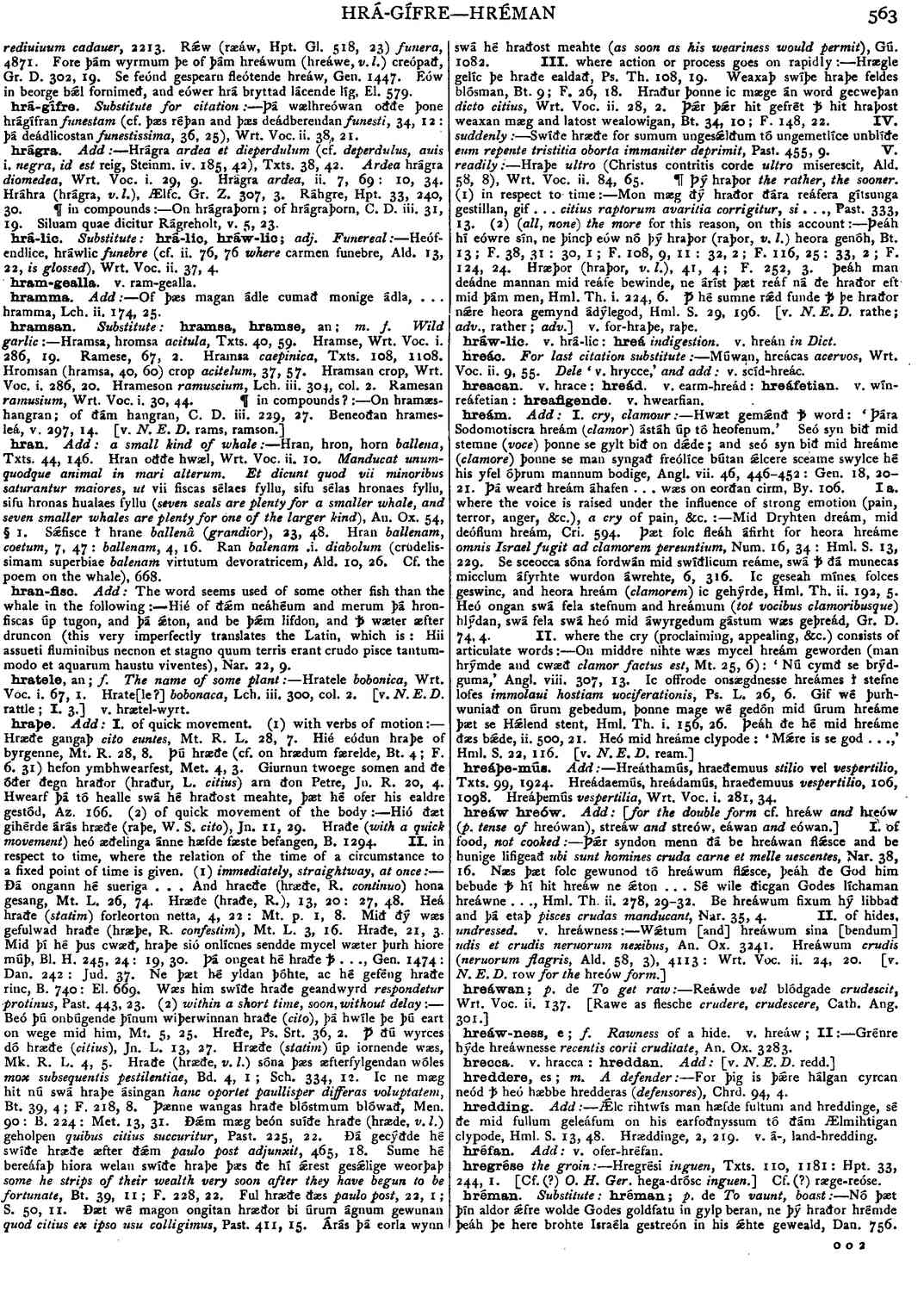hreám
-
Hwæt gemǽnð ꝥ word: 'Þára Sodomotiscra hreám (
clamor) ástáh úp tó heofenum.' Seó syn bið mid stemne (voce) þonne se gylt bið on dǽde; and seó syn bið mid hreáme (clamore )
þonne se man syngað freólíce bútan ǽlcere sceame swylce hé his yfel óþrum mannum bodige,- Angl. vii. 46, 446-452: Gen. 18, 20-21.
-
Þá wearð hreám áhafen . . . wæs on eorðan cirm, By. 106. I a. where the voice is raised under the influence of strong emotion (pain, terror, anger, &c.),
a cry
of pain, &c. :-- Mid Dryhten dreám, mid deóflum hreám,- Cri. 594.
-
Þæt folc fleáh áfirht for heora hreáme
omnis Israel fugit ad clamorem pereuntium,
- Num. 16, 34: Hml. S. 13, 229.
-
Se sceocca sóna fordwán mid swíðlicum reáme, swá ꝥ ðá munecas micclum áfyrhte wurdon áwrehte,
- 6, 316.
-
Ic geseah mínes folces geswinc, and heora hreám (
clamorem
) ic gehýrde,- Hml. Th. ii. 192, 5.
-
Heó ongan swá fela stefnum and hreámum (
tot vocibus clamoribusque
) hlýdan, swá fela swá heó mid áwyrgedum gástum wæs geþreád,- Gr. D. 74, 4.
-
On middre nihte wæs mycel hreám geworden (man hrýmde and cwæð
clamor factus est,
- Mt. 25, 6): 'Nú cymð se brýdguma,' Angl. viii. 307, 13.
-
Ic offrode onsægdnesse hreámes ł stefne lofes
immolaui hostiam uociferationis,
- Ps. L. 26, 6.
-
Gif wé þurhwuniað on úrum gebedum, þonne mage wé gedón mid úrum hreáme þæt se Hǽlend stent,
- Hml. Th. i. 156, 26.
- Þeáh ðe hé mid hreáme ðæs bǽde, ii. 500, 21.
- Heó mid hreáme clypode: 'Mǽre is se god . . .,' Hml. S. 22, 116.
Bosworth, Joseph. “hreám.” In An Anglo-Saxon Dictionary Online, edited by Thomas Northcote Toller, Christ Sean, and Ondřej Tichy. Prague: Faculty of Arts, Charles University, 2014. https://bosworthtoller.com/53125.
Checked: 0